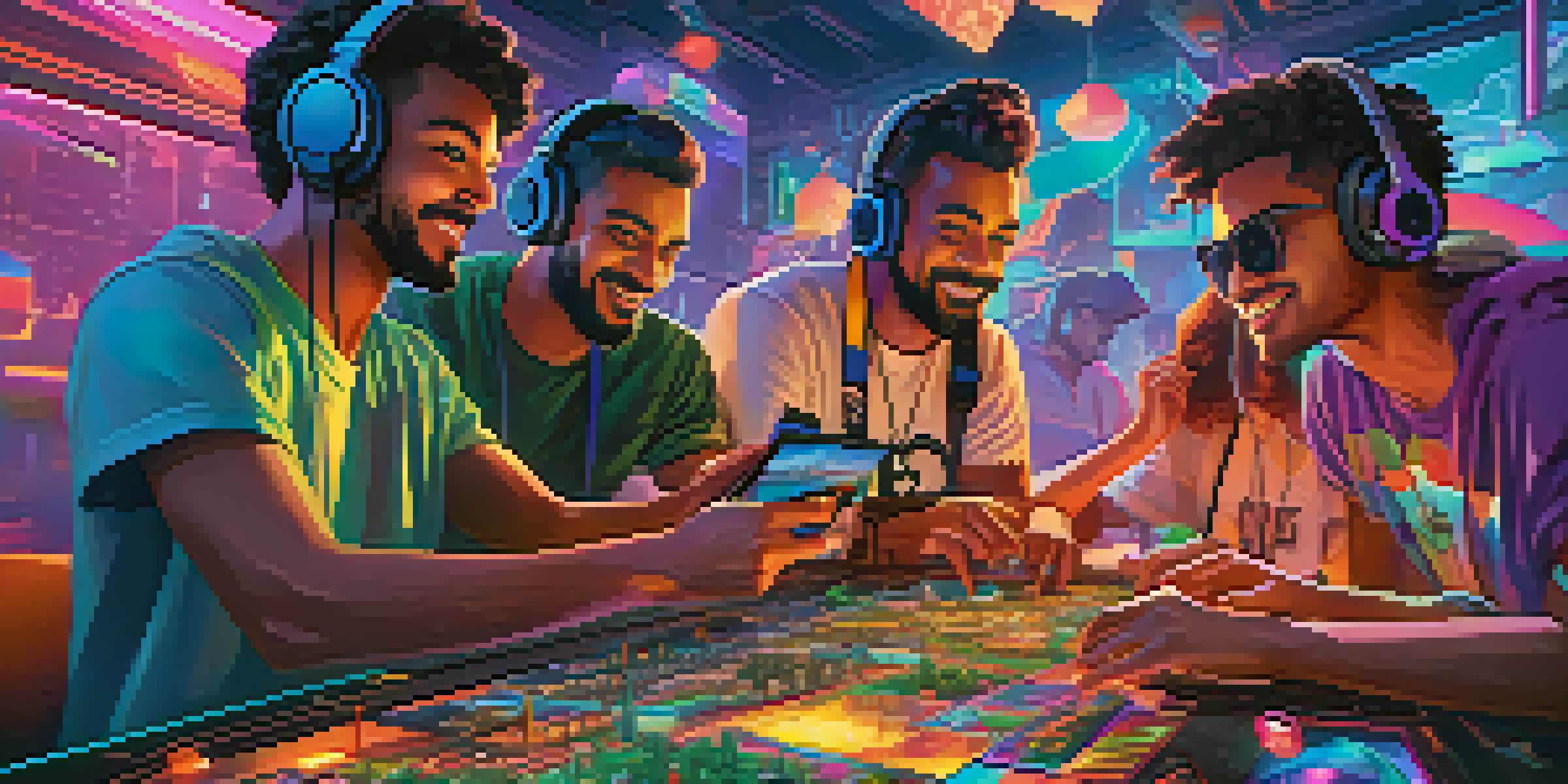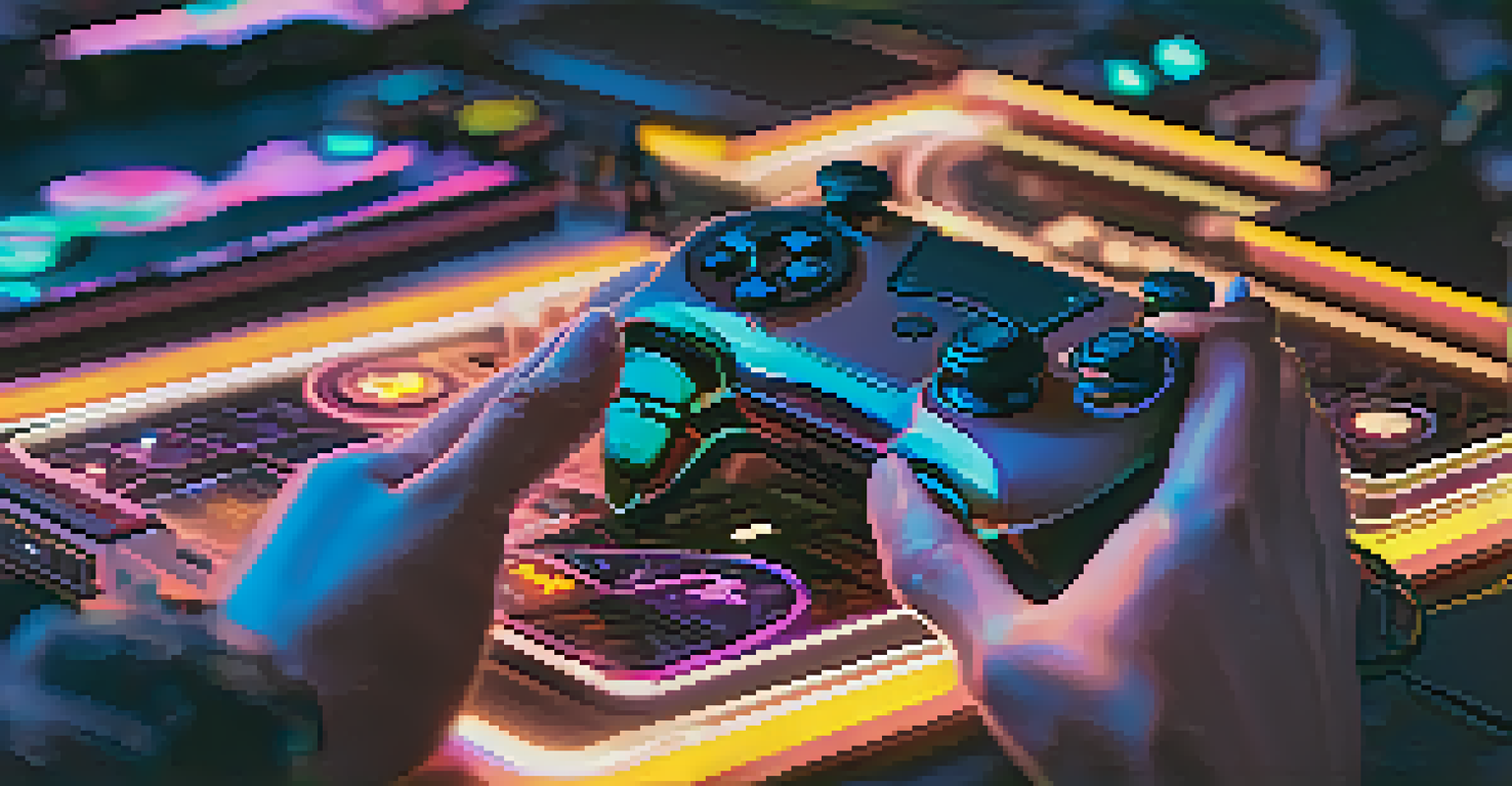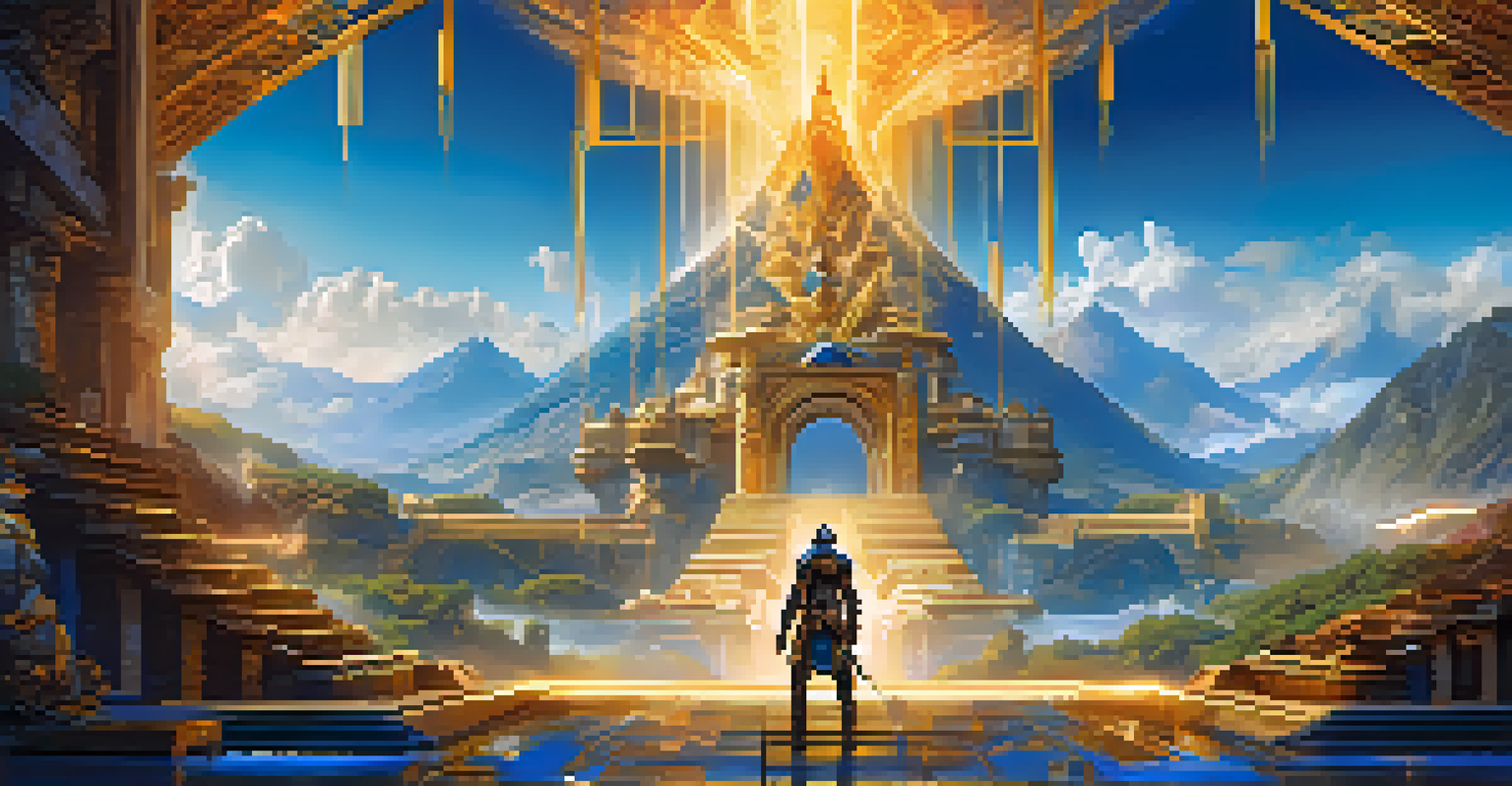The Impact of NFT Gaming on Mental Health and Social Interaction

Understanding NFT Gaming and Its Popularity
NFT gaming has surged in popularity, combining gaming with blockchain technology. Players can own unique digital assets, or NFTs, that provide a sense of ownership and investment. This new form of gaming appeals to both traditional gamers and those curious about cryptocurrency. As a result, NFT games are creating communities that extend beyond mere entertainment.
Games are a part of the cultural fabric of our time, and in many ways they reflect our hopes, fears, and aspirations.
The allure of earning real-world value from in-game activities has attracted many players. Unlike conventional games, where items are often tied to the game's ecosystem, NFTs allow for trade and ownership that can be leveraged in real economies. This shift in perspective around gaming has opened doors for new interactions and opportunities for players.
However, with this popularity comes the need to consider its broader impacts, particularly on mental health and social dynamics. As more individuals engage in these virtual spaces, understanding the psychological implications becomes crucial.
The Positive Effects of NFT Gaming on Mental Health
NFT gaming can foster a sense of accomplishment and boost self-esteem. Completing challenges and earning unique assets can create a rewarding experience that translates into real-life confidence. Players often find joy in collecting and showcasing their NFTs, which can enhance their overall mood.

Moreover, the collaborative nature of many NFT games encourages teamwork and camaraderie among players. Engaging with others towards a common goal can alleviate feelings of loneliness and depression. Players often share strategies, celebrate successes, and support one another, creating a positive community atmosphere.
NFT Gaming Boosts Mental Well-Being
Engaging in NFT gaming can enhance self-esteem, foster community, and provide an outlet for creativity.
The creativity involved in NFT gaming also serves as an outlet for self-expression. Whether it's designing a character or strategizing in-game, players can channel their emotions into something productive, which can be beneficial for mental well-being.
Challenges and Risks of NFT Gaming on Mental Health
While NFT gaming has its benefits, it also presents risks that can negatively impact mental health. The potential for addictive behaviors can arise as players strive for rare items or higher rankings. This obsession can lead to neglecting real-life responsibilities and relationships, creating an unhealthy balance.
The greatest game is not the game you play, but the game you share with others.
Additionally, the financial stakes involved in NFT games can induce stress and anxiety. Players may feel pressured to invest money in order to remain competitive, which can lead to financial strain. This financial anxiety can perpetuate a cycle of pressure and stress, affecting mental health.
It's essential for players to recognize the signs of unhealthy gaming habits and seek help if needed. Striking a balance between gaming and real-life responsibilities is key to maintaining mental well-being.
Social Interaction Through NFT Gaming Communities
NFT gaming has cultivated dynamic online communities where players connect over shared interests. These communities often extend to social media platforms, where discussions, trades, and collaboration flourish. Such interactions can lead to friendships that transcend geographical boundaries, enriching players' social lives.
Participating in these communities can enhance social skills, particularly for individuals who may struggle with face-to-face interactions. Engaging in discussions and contributing to group activities can provide a comfortable environment for building confidence. This virtual interaction can serve as a stepping stone towards more personal connections.
Risks of NFT Gaming on Mental Health
The addictive nature and financial pressures of NFT gaming can lead to stress, anxiety, and unhealthy gaming habits.
However, it's important to remember that online interactions should complement, not replace, real-life relationships. Striking a balance between digital and physical socializing can lead to a healthier social life overall.
The Role of Collaboration in NFT Gaming
Collaboration is at the heart of many NFT games, often requiring players to work together to achieve goals. This teamwork can enhance communication skills and foster a sense of belonging among players. The shared experience of overcoming challenges together can create strong bonds and improve social interactions.
Moreover, collaborating in NFT games can lead to shared learning experiences. Players can share tips, strategies, and insights, helping one another improve their skills. This cooperative environment encourages a positive exchange of knowledge that can be empowering.
In essence, collaboration within NFT gaming not only enhances the gaming experience but also contributes to personal growth and improved social dynamics.
Building Resilience Through NFT Gaming Experiences
Engaging in NFT gaming can help develop resilience, as players often face challenges and setbacks. Learning to navigate failures and work towards success can translate into valuable life skills. This process of overcoming obstacles fosters a growth mindset, which can be beneficial in various aspects of life.
Additionally, the ever-evolving nature of NFT games means players must adapt to new challenges and updates. This adaptability can enhance problem-solving skills and encourage players to embrace change. Such experiences can instill a sense of confidence in tackling real-world challenges.
Collaboration Enhances Social Skills
Working together in NFT games cultivates communication skills and builds a sense of belonging among players.
Ultimately, the resilience built through NFT gaming can contribute to overall mental strength, helping players cope with life's ups and downs.
The Future of NFT Gaming and Mental Health Awareness
As NFT gaming continues to evolve, there is a growing need for awareness around its impact on mental health. Developers and players alike should prioritize creating safe and supportive environments. Encouraging open discussions about mental health within gaming communities can help reduce stigma and promote well-being.
Furthermore, integrating mental health resources and support within NFT games can provide players with tools to manage stress and anxiety. This proactive approach can help ensure that gaming remains a positive experience rather than a source of distress.

The future of NFT gaming holds great potential for fostering both entertainment and mental wellness, provided that stakeholders remain mindful of its implications.